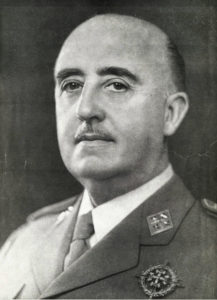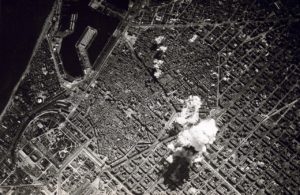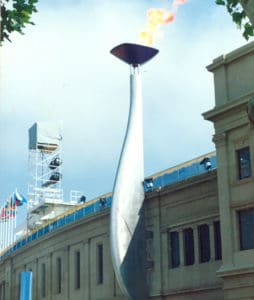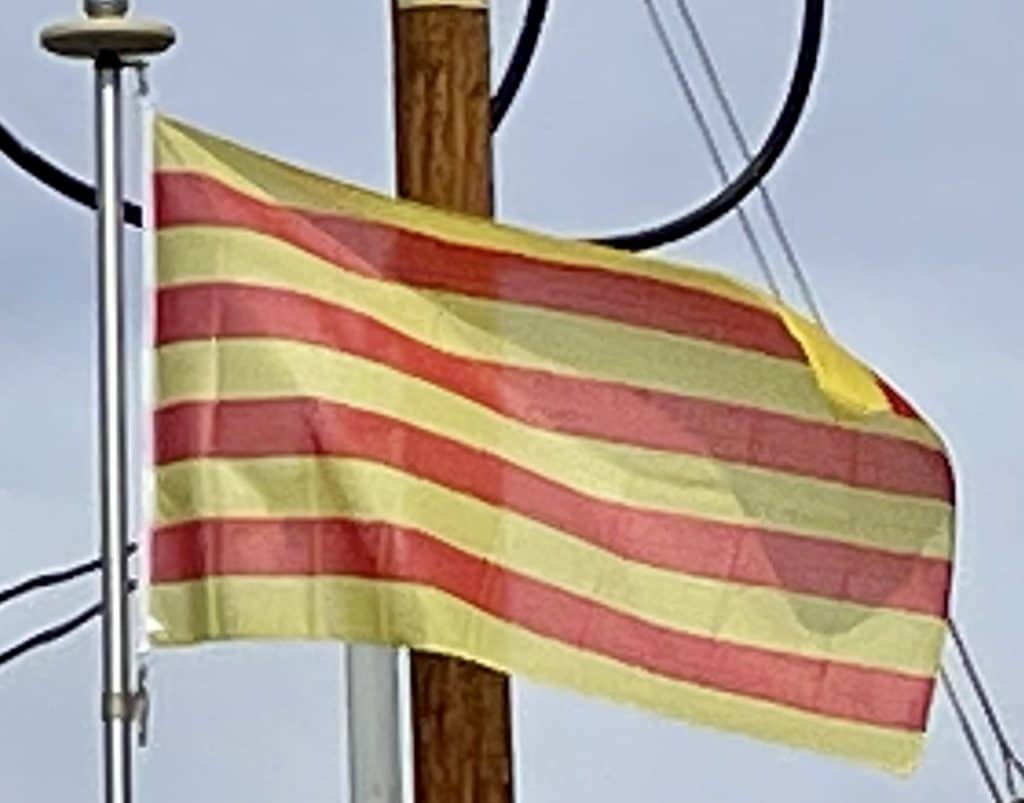
The defeat of the Spanish Republic in the Spanish Civil War brought to power the dictatorship of Francisco Franco, whose first ten-year rule was particularly violent, autocratic, and repressive both in a political, cultural, social, and economical sense. In Catalonia, any kind of public activities associated with Catalan nationalism, republicanism, anarchism, socialism, liberalism, democracy or communism, including the publication of books on those subjects or simply discussion of them in open meetings, was banned.
During later stages of Francoist Spain, certain folkloric and religious celebrations in Catalan resumed and were tolerated. Use of Catalan in the mass media had been forbidden, but was permitted from the early 1950s in the theatre. Despite the ban during the first years and the difficulties of the next period, publishing in Catalan continued throughout his rule.

The years after the war were extremely hard. Catalonia, like many other parts of Spain, had been devastated by the war. Recovery from the war damage was slow and made more difficult by the international trade embargo and the autarkic politics of Franco’s regime. By the late 1950s the region had recovered its pre-war economic levels and in the 1960s was the second fastest growing economy in the world in what became known as the Spanish miracle. During this period there was a spectacular growth of industry and tourism in Catalonia that drew large numbers of workers to the region from across Spain and made the area around Barcelona into one of Europe’s largest industrial metropolitan areas.
Transition and Democratic Period (1975–present):
After Franco’s death in 1975, Catalonia voted for the adoption of a democratic Spanish Constitution in 1978, in which Catalonia recovered political and cultural autonomy, restoring the Generalitat (exiled since the end of the Civil War in 1939) in 1977 and adopting a new Statute of Autonomy in 1979. First election to the Parliament of Catalonia under this Statute gave the Catalan presidency to Jordi Pujol, a position he would hold until 2003. During this time, he also led Convergència i Unió (CiU), a center-right Catalan nationalist electoral coalition. Throughout the 1980s and 1990s, the institutions of Catalan autonomy continued to develop, among them an autonomous police force (Mossos d’Esquadra, in 1983), and the broadcasting network Televisió de Catalunya and its first channel TV3, created in 1983. Today, Catalonia is one of the most economically dynamic communities of Spain. The Catalan capital and largest city, Barcelona, is a major international cultural center and a major tourist destination. In 1992, Barcelona hosted the Summer Olympic Games.

In November 2003, elections to the Parliament of Catalonia gave the government to a left-wing catalanist coalition formed by the Socialists’ Party of Catalonia (PSC-PSOE), Republican Left of Catalonia (ERC) and Initiative for Catalonia Greens (ICV), and the socialist Pasqual Maragall was appointed president. The new government redacted a new version of the Statute of Autonomy, which consolidated and extended certain aspects of self-government.
